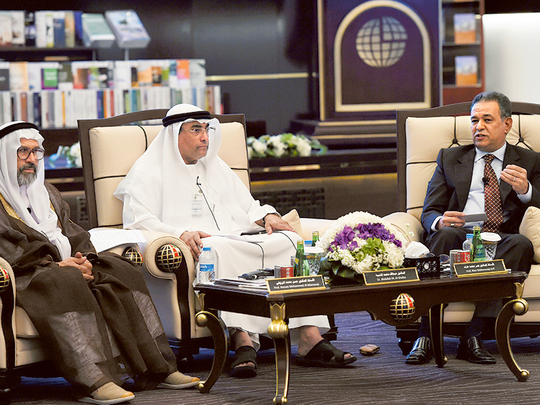
Abu Dhabi: With several extremist groups propagating a narrative that speaks against national identity and borders, scholars gathered together to discuss, from an Islamic perspective, how a sense of belonging to one’s nation and homeland is very much a part of Islam, at a lecture held in Abu Dhabi on Tuesday evening.
The talk was the first in a series of Ramadan lectures to be held at the Emirates Centre for Strategic Studies and Research (ECSSR), which is also part of a broader campaign during the month of Ramadan, with lectures being held throughout the month to put forward a proper understanding of Islamic subjects contrary to extremist narratives.
Speaking on the theme subject, Professor Hassan Mohammad Al Marzouqi, Head of the Department of Sharia and Islamic Studies, College of Law, said, “What we should know and share with our youth is the true meaning of the homeland, our homeland gives us a lot, and we should give back, it is like a debt. Everyone should help according to their capabilities. Many claim to love the homeland but they target the youth and they make them understand that love of one’s nation is something far away from the concepts of Islam and our culture, so we must concentrate on the youth because they are the future.”
Professor Al Marzouqi said within Islamic texts such as the Quran, even prophets loved their homeland, “Loving the homeland is not only for the people, but also for the prophets. Prophet Ebrahim loved Makkah, the Prophet Mohammad (PBUH) when looking at Makkah said it is the most beloved place to his heart, so there are many examples of the importance of the homeland, but extremists don’t resort to the logical interpretation of the homeland in Islam. Extremist views have damaged and distorted Islam through an erroneous understanding of its principles and values, sowing the seeds of sedition,” he said.
Professor Nasr Mohammad Arif, Adviser to the Minister of Culture, Youth and Community Development in the UAE, mentioned how the homeland is part and parcel of Islam. “In Islam there are obligations and rights, this is related to the person as a social being. The human cannot live anywhere without a package of rights and obligations, and who decides this package? The leaders, not some groups. Obligations and rights that are part of the core of Islam cannot be achieved without a homeland and a legal framework and institutions that help implement it, such as the police and the government.”
Speaking of extremists, he added, “Unfortunately there are cross-border groups who reject the homeland without giving an alternative; they only consider getting out of the homeland and going to some group and this is happening right now. This is what threatens our youth, mobilising them to destroy their homeland, and this has nothing to do with Islam … Without collective living through a homeland, we will not have peace and stability.”








